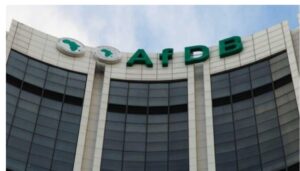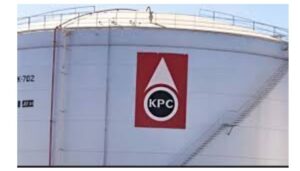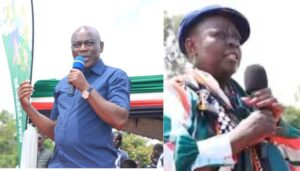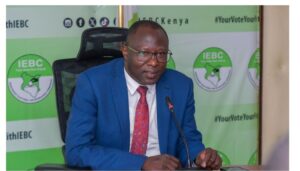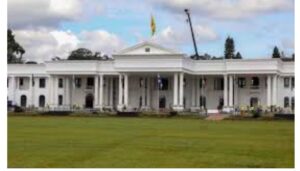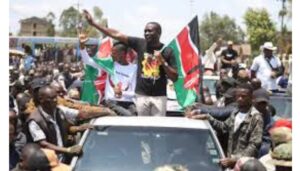Education, Health, and biggest winners in Ksh4.29 trillion budget 2025/26
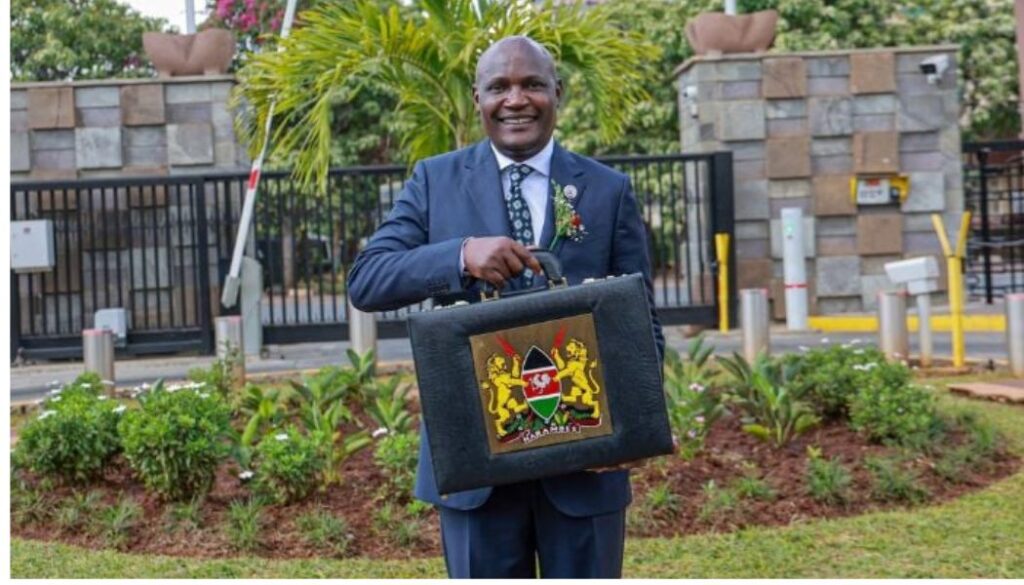
Treasury Cabinet Secretary John Mbadi on Thursday, June 12, presented a Ksh4.29 trillion budget in the National Assembly.
Treasury Cabinet Secretary John Mbadi on Thursday, June 12, presented a Ksh4.29 trillion budget in the National Assembly.
The money is allocated across various sectors and a close look at the numbers from the budget statement reveals the areas receiving the most significant financial backing.
Notably, education received the largest share of the budget at Ksh702.7 billion.
This includes Ksh387.2 billion for the Teachers Service Commission, Ksh51.9 billion for Free Day Secondary Education, Ksh28.9 billion for Junior Secondary Capitation, Ksh7 billion for Free Primary Education, and Ksh41.5 billion for the Higher Education Loans Board.
Additional allocations are Ksh16.9 billion for university scholarships, Ksh7.7 billion for TVET scholarships and capitation, Ksh5.9 billion for administration of national examinations, Ksh4.0 billion for technical and vocational education, Ksh13.3 billion for equity in primary education, and Ksh2.3 billion to improve quality in secondary education.
The national security allocation stands at Ksh464.8 billion.
The Kenya Defence Forces (KDF) received the largest share with Ksh202.3 billion, while the National Police Service (NPS) was allocated Ksh125.7 billion and an additional Ksh10 billion for leasing police motor vehicles.
The Police Modernization Programme received Ksh3.6 billion, and Ksh1.2 billion was allocated for the construction and upgrade of national forensic facilities.
The National Intelligence Service (NIS) was allocated Ksh51.4 billion, the Prisons Services Ksh38.1 billion and the Internal Security and National Administration was granted Ksh32.5 billion.
County governments will receive Ksh405.1 billion as an equitable share of revenue raised nationally, which marks an increase of Ksh17.6 billion from the previous financial year’s Ksh387.4 billion.
The roads and transport sector has an allocation of Ksh217.3 billion.
Of this, Ksh30.9 billion is allocated for road construction, Ksh70.8 billion for rehabilitation, and Ksh115.6 billion for maintenance.
The development of rail infrastructure received Ksh38 billion, while Ksh331.2 million was allocated to the Nairobi Bus Rapid Transit (BRT) Project and Ksh298.7 million to the E-Mobility Project.
Health received Ksh138.1 billion. This includes Ksh6.2 billion for coordination of Universal Health Coverage, Ksh13.1 billion for the Primary Healthcare Fund, and Ksh42.4 billion for referral hospitals.
The budget further allocates Ksh17.3 billion for HIV, TB, and malaria interventions, Ksh4.6 billion for vaccines and immunization, Ksh8 billion for the Emergencies, Chronic and Critical Illness Fund, Ksh1 billion for a cancer center in Kisii, Ksh100 million each for cancer support at Kenyatta National Hospital and Kenyatta University Hospital, and Ksh4.3 billion for medical interns.
Ksh3.2 billion is set aside for community health promoters, Ksh303 million for health personnel training, and Ksh8.9 billion for Kenya Medical Training Colleges.
Housing and urban development received Ksh128.3 billion, including Ksh64.5 billion for affordable housing units, Ksh10.5 billion for social housing, Ksh16.5 billion for related infrastructure, and Ksh13.4 billion for the Kenya Urban Programme.
UDA politician, Nanam Ward MCA Philip Ekuwam is dead
Protests break out in Nairobi CBD with calls for DIG Lagat to resign over Albert Ojwang murder
IPOA speaks on summoning DIG Eliud Lagat
Samidoh meets Matiang’i in US amid police desertion claims
IEBC official among five public servants arrested in fake certificates crackdown
Outrage after woman loses pregnancy at police station
Informal settlement improvement was allocated Ksh7.2 billion, police and prison housing received Ksh3.5 billion, and Ksh500 million was set aside for building climate resilience for the urban poor.
Ksh454 million will go to the construction of footbridges and Ksh2.6 billion to support the regulation and development of the construction industry.
The energy sector received Ksh62.8 billion, including Ksh31.6 billion for the national electricity grid, Ksh16.3 billion for rural electrification, Ksh11.5 billion for geothermal energy, Ksh2.1 billion for alternative energy technologies, and Ksh743.8 million for nuclear energy development.
Agriculture was allocated Ksh47.6 billion, comprising Ksh8 billion for the Fertilizer Subsidy Programme, Ksh10.2 billion for the Agricultural Value Chain Development Project, Ksh800 million for small-scale irrigation and value addition, Ksh1.2 billion for food security and crop diversification, and Ksh5.8 billion for the Food Systems Resilience Project.
The livestock subsector received Ksh2.3 billion for pastoral economy development, Ksh1.6 billion for the Livestock Commercialization Programme, and Ksh280 million for livestock value chain support.
Further, an additional Ksh340 million will go to the Leather Industrial Park in Kenanie.
Social protection received Ksh41.4 billion to cater for cash transfers under the Inua Jamii programme and other welfare initiatives targeting orphans, vulnerable children, the elderly, and persons with disabilities.
Manufacturing and MSME support was allocated Ksh18 billion, including Ksh4.5 billion for county agro-industrial parks, Ksh2.8 billion for local industry support, Ksh300 million for the Hustler Fund, Ksh308 million for the Youth Enterprise Development Fund, Ksh550 million for the Centre for Entrepreneurship, and Ksh1.3 billion for the Rural Kenya Financial Inclusion Facility.
ICT and digital infrastructure received Ksh12.7 billion, compromising Ksh2.3 billion for the Kenya Advanced Institute of Science and Technology at Konza, Ksh3.7 billion for the Digital Economy Acceleration Project, Ksh3.1 billion for the Konza Data Centre and smart city facilities, Ksh750 million for the national optic fiber backbone, Ksh689 million for digital hubs, Ksh333.2 million for government shared services, Ksh382 million for the digital superhighway, and Ksh700 million for the rollout of the e-government procurement system.
Meanwhile, the blue economy and fisheries were allocated Ksh8.2 billion, while land and settlement were allocated Ksh3.8 billion for resettling the landless.
Two vehicles burnt in Nairobi CBD during protests over Albert Ojwang death
Arrest warrant issued against activist Boniface Mwangi
Air India plane crashes with 242 on board
Revealed! Ojwang tortured into coma in Karura forest in presence of top police official
Your heart is in Gachagua camp – MP Sudi goes after Senator Cherargei
Kenya listed among high-risk countries for money-laundering, terrorism financing
Follow us


